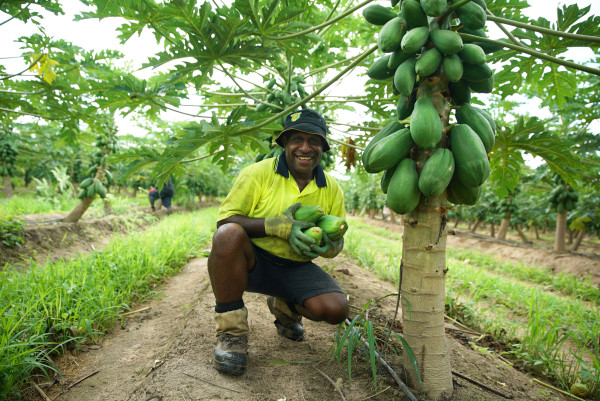Rethinking the Development "Wins" from Labour Mobility
25 Oct 2023
The development benefits of labour mobility are not as straight forward as we would like. Emeritus Professor Richard Bedford dwelled on the complexities of the labour mobility-development nexus saying "we're just assuming that labour mobility is always good, or labour mobility is always bad. Labour mobility is a process and an option that individuals can exercise at different times in their lives, depending on the access they've got to other places to live in, and it's not just a simple linear direct relationship".
Labour mobility generally refers to the movement of labour to deliver a service in an overseas labour market. It can cover movement for very short periods or a much longer or even permanent term. Similarly, development is defined by scale, and it is crucial to recognise the factors which enhance or mitigate development at every level.

Labour migration can generate "triple wins" for migrants, their countries of origin and the countries that receive them. Photo: PALM Scheme
Professor Bedford elaborated that "if you're looking at mobility generally, you're looking at decisions that people make about moving in order to achieve some particular goals or improvements perhaps in their lives or to escape something which they don't like in the context they're currently living in. So, development in that context is very much development of the individual and the social unit that they're involved in and just by simply saying that what's good for the individual is necessarily good for the community or good for the nation is a little bit simplistic".
The labour mobility-development nexus has also been captured in the proposal that temporary labour migration can generate 'triple wins' for migrants, their countries of origin and the countries that receive them. While there is consensus amongst labour mobility researchers on labour mobility generating multiple wins, there is not much convergence on who wins.
Professor Bedford indicated that the "challenge with the triple win is that there are two parties that are definite -- the employer who wants labour, and the workers who provide that labour. They are the people who are engaged in the process of seasonal movement, and they have to feel that they are benefiting from the interaction."
The third win, however, is unclear. Some scholars are questioning whether the "win" for individual workers effectively translates to sustainable socio-economic development in their countries of origin.
Professor Bedford elaborated on the issue saying "people who come back year after year, their family becomes completely dependent on money earned offshore, and that's not to contribute to development back home, that's just simply to cover consumption. It (increased consumption) increases imports into the country because all they're really doing is adding to consumer demand for, well, a mix of local produce and often more and more imported produce, which doesn't do great things for the balance of trade necessarily for the country". At the same time, the win for the labour receiving countries should not be discounted. Professor Bedford said that "the receiving country is getting an enormous amount of revenue from this as well, and we don't really quantify that. We don't ever address that, and so I actually think the triple win concept needs some quite careful rethinking".
The development benefits of labour mobility are also contingent on the type of labour mobility. Professor Bedford highlighted the critical importance of stakeholders understanding the contrasting impacts of short-term and long-term labour mobility programmes. "The biggest negative is taking away the skilled labour that the public and private sectors in the island countries need and have spent a lot of money training," Professor Bedford stated.
He further clarified that in the case of short-term labour mobility "you should be selecting people in villages who have few opportunities to earn a lot of money at home because their skills are very much the skills of agriculture and that's where they will make their money, their skills. They're people that work the land, and you're going to bring them in to continue to work the land". Long-term labour mobility can have a different type of impact and these contrasts should be considered in the design of labour mobility and development policies and strategies.
The Pacific Labour Mobility Annual Meeting (PLMAM) provides a unique forum for rethinking of the different "wins" from labour mobility to inform policy formulation in the Pacific. Professor Bedford recognised the significance of PLMAM stating that it provides the "opportunity to share information, to acknowledge that we (countries) are in competition, but...we're going to have to cooperate and
collaborate and work out standards and work out bottom lines, what we're prepared to accept and what we're not prepared to accept and not to undercut each other and not to have a race to the bottom".
With the theme of "harnessing the development benefits of labour mobility", PLMAM 2023 seeks to bring together all relevant stakeholders to determine regional solutions that can enhance the wins for all those involved.
Subscribe today
Don't miss our latest updates and news about PACER Plus